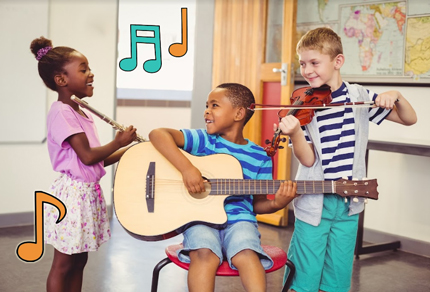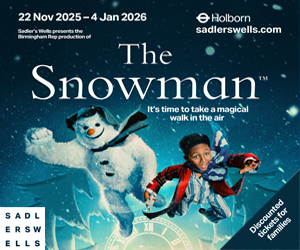Primary Times - the definitive what’s on and where to go family guide of activities and events for children of primary school age. Things to do with your kids during the school holidays including arts and craft activities, music and theatre for children, parties, competitions, days out, and family attractions along with term time drama schools, dance classes, after school clubs and sports activities. Things to do at a place near you!
Choosing The Perfect First Instrument
 Primary Times explores what to consider when buying your child’s first instrument
Primary Times explores what to consider when buying your child’s first instrument
Choosing a first instrument for your child to learn can be an important decision to make. Not only will it be the sound you’ll hear most often while they practice, it could also be an enriching hobby that your child holds for years to come. There are many things to consider when buying a new instrument. Primary Times has shared some of the top considerations that can make your instrument search a much easier and enjoyable task.
Age
When thinking about the right instrument, age is a big consideration. While it is easier to learn music at a younger age, some musical instruments are better to learn when your child has developed their strength, stamina and height. Brass instruments such as the tuba, trombone and the French horn are good examples of this as they require strong lungs, strong mouth muscles, and can be heavy to hold upright.
Popularity
Choosing a popular instrument such as guitar or piano could be a good idea because there tends to be more of online and tutoring resources available. Finding a teacher nearby might also be likely which will avoid any long commutes. However, the downside of choosing a popular instrument is that there will be a lot of other talented children, which might demotivate your child from performances or competitions. Some children may also be more likely to learn an instrument that their friends have seen before or also play. This could be a fun experience that allows your child to make new friends and connect with others who play the same instrument.
Interest
The most important consideration to make when choosing an instrument is if your child is actually interested in it. While it’s normal for children to gain and lose interest in new hobbies, it’s crucial for your child to be enthusiastic about learning the instrument at the very beginning. The more excited a child is for the instrument, the more commitment they’ll usually give it. Try taking your child to a few music shops before purchasing anything. This will allow your child to get familiar with a wide range of instruments before buying. If your child seems indiff erent to the instruments in the music shop, try fi nding out if your child prefers melody, harmony, or beat. These are three vital components to music that encompass various instruments. If you child enjoys the beat of music, for example, they might enjoy playing on the drums.
Financial
Once your child has chosen the instrument they wish to learn, it’s a good idea to give yourself a purchasing budget. Even if your child is extremely enthusiastic and you’ve found an instrument that fi ts them perfectly, there is no guarantee that they will keep playing long term. Buying an inexpensive beginners instrument is the best way of not losing a lot of money if your child becomes uninterested. It’s also a good idea to ask your child’s school or local music shop if they off er any instruments to rent or practice with during term times. Try to also consider the long-term expenses of an instrument. The cost of maintenance for an instrument can soon add up. For example, stringed instruments will need their strings replacing whenever they break and Rosin is needed for a cello and violin bow. If you child takes lessons to learn their instrument, these fees will vary depending on the instrument and your location. Online lessons from platforms such as YouTube could be a good alternative to this depending on how your child learns best.




